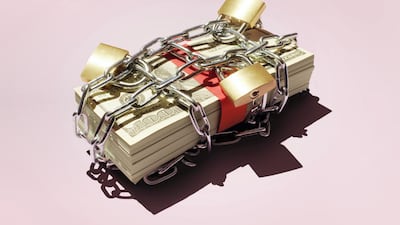An expression that has seen some people get rich through the ages is "when there’s blood on the streets, buy property". During a financial crisis people often want to sell possessions at a steep discount to raise cash. Then, when things return to a more stable state, those assets will be worth more and the person who did the buying will realise huge profits.
It's certainly callous and doesn’t consider the person losing out. It takes a certain coldbloodedness to take profit off your fellow citizens in times of need, but there are plenty of sharks circling as those in distress 'bleed'.
With that in mind, I want to help you avoid being exploited, because I can guarantee there will be people out there looking to drain you of your last remaining resources as we ease out of lockdown and into a global economy that is hurting badly. Here are four financial traps to avoid to protect your finances post Covid-19:
Get rich quick schemes, targeting the desperate
Many now find themselves in tight financial situations. Maybe their jobs have gone and they don’t know what to do next. They may be flailing around trying to find anything to help them and then someone comes along and says "if you just pay me some money, I can get you a new lucrative job" or "I can double your money".
If an offer seems too good to be true, especially during these times, then it probably is and you are victim to a scam. The scammer comes in many guises; it could be someone peddling an investment opportunity, or a “guru” on YouTube, selling you his course, or a job with a multi-level-marketing company, essentially a pyramid scheme, that allows you to work from home, as long as you sell all your friends essential oils or yoga pants.
This isn’t to say that all courses are a scam or that all jobs aren't ethical, but if you want to learn a new skill, the odds are that the information is already available on the internet for free, without a hefty price tag attached. And when it comes to jobs, some recruitment agencies in the region offer to retrain candidates for growing industries for free.
High-interest loans from loan sharks
Sadly, in desperate times, low-income workers can resort to taking out an unsecured loan from a loan shark. Predatory private lenders can seem like a lifeboat if you have lost your job, as they will give you cash immediately. What borrowers overlook though is the exorbitantly high interest rates they can charge of up to 100 per cent per year. The rates are broken up monthly, so that the borrower is unaware of what they are taking on. This type of loan is extremely difficult to pay off and can destroy livelihoods. Avoid this resource at all costs; it can get very nasty and it's hard to disentangle yourself from this type of credit.
Only paying the minimum off your credit card balance
The average annual interest rate on credit cards in the UAE sits at about 40 per cent. Paying for things on plastic can seem a painless way to get through a tough financial situation. However, if you don’t pay off your balance every month, that interest payment can quickly build up into a monster that devours all your future pay cheques. Do everything you can to pay off your credit cards every month and always pay more than the minimum payment to ensure you actually work towards clearing the outstanding balance.
Paying a full year's rent upfront
Landlords are increasingly offering hefty rental discounts to ensure they are earning an income on their properties. My friend’s annual rent on her apartment has gone down from Dh55,000 to Dh25,000 in just two years. Another friend just had Dh10,000 knocked off the rate, just because she asked.
Now is a great time to downsize your living space to cut a major expense or negotiate paying monthly. Talk to your landlord about breaking the rental cost into more affordable instalments and introducing a break clause to the contract in case you need to move out quickly.
I’m sure there are plenty of other ways people will try to profit from the desperation of others, so be on your guard and protect yourself.
Dubai schoolteacher Zach Holz (@HappiestTeach) documents his journey towards financial independence on his personal finance blog The Happiest Teacher

